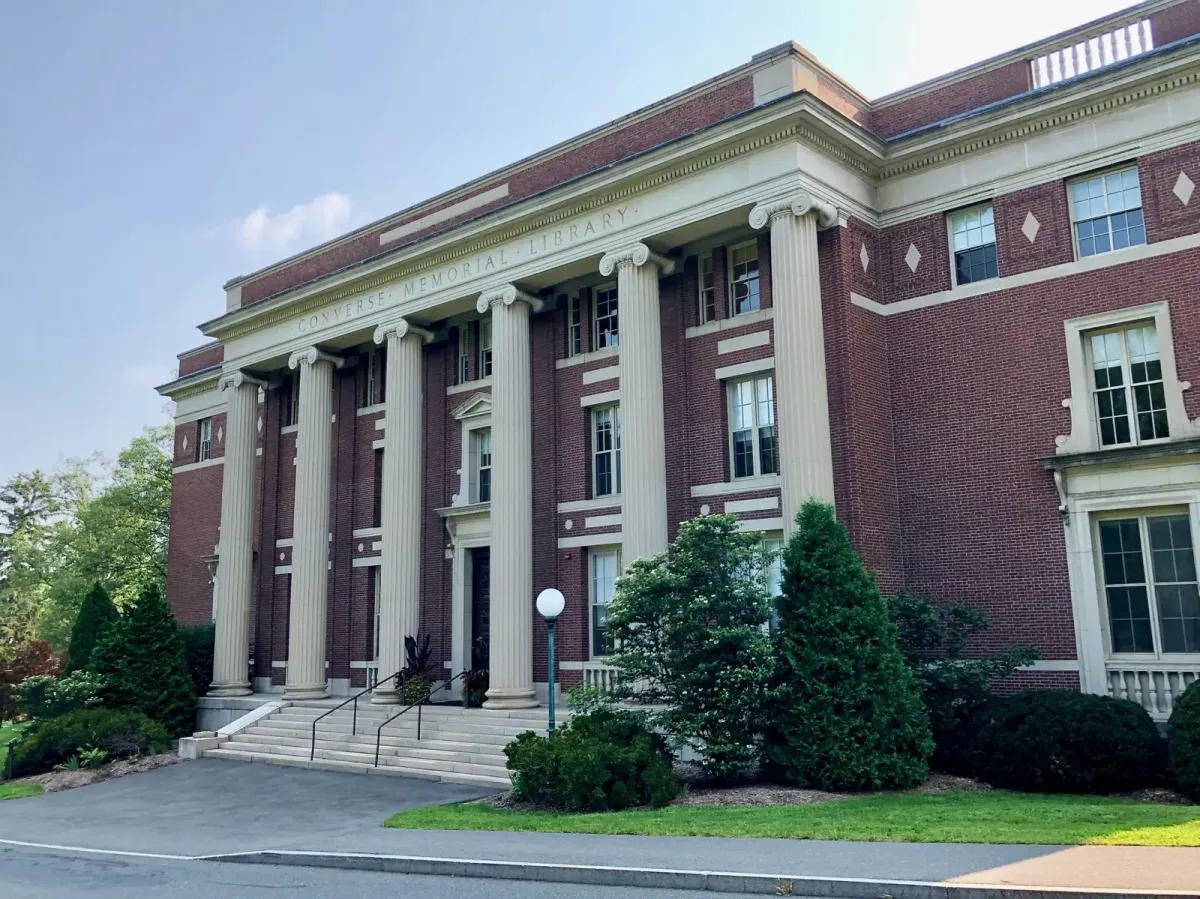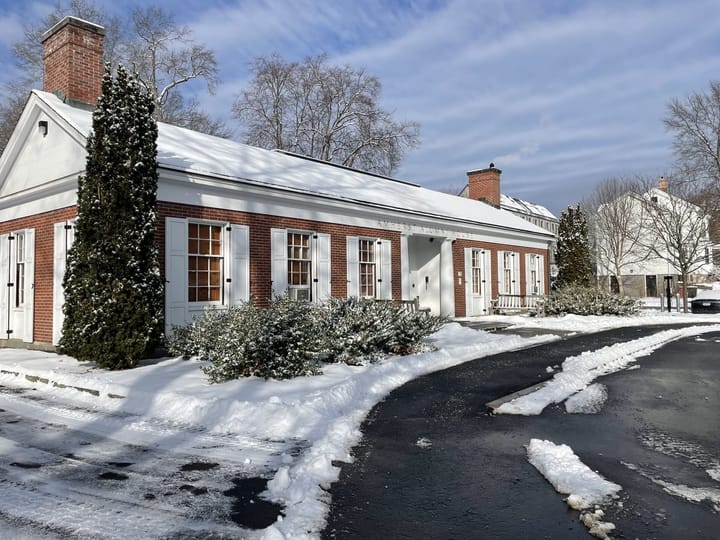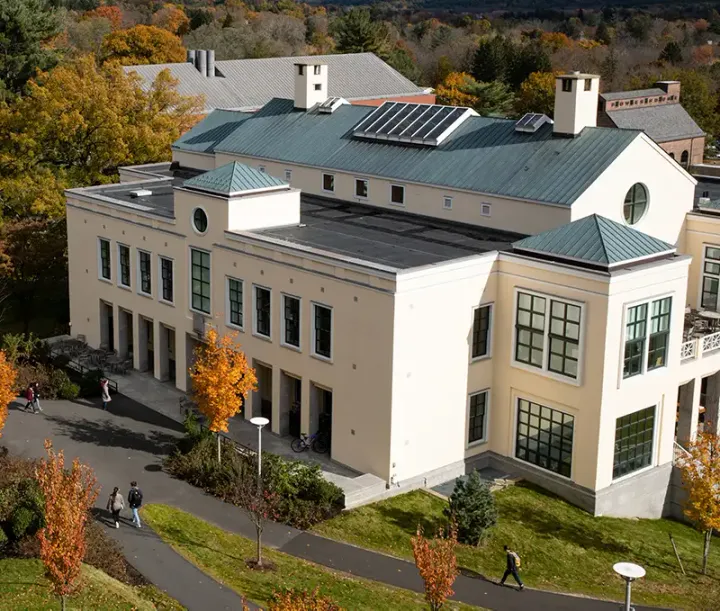College Joins Amicus Brief Challenging Visa Revocations
Last week, the college announced it had joined 85 other institutions in filing an amicus brief in federal court challenging the visa revocations of various international students across the country.

Recent revocations of student visas due to the policies of President Donald Trump’s administration have caused growing anxiety among members of the international community at Amherst.
In response to escalating fears, the President’s Office sent an email to the Amherst community on April 21 titled “Support for Our International Community.” In addition to acknowledging the importance of the international community to the college and providing students with information and mental health resources, the email announced that Amherst recently joined 85 other institutions in filing an amicus brief in federal court to challenge the visa revocations.
Currently, it is estimated that over 1,800 students across more than 280 colleges and universities in the United States have had their visas revoked. The list includes Amherst’s neighbor, UMass Amherst, which announced earlier this month that five of its international students lost their visas without the university receiving prior notification.
In many cases, school officials report that the reasons for these revocations and the subsequent termination of students' legal status in the U.S. remain unclear. While some cases involve allegations of pro-Palestinian activism, criminal infractions, or even minor traffic violations, other students are left wondering why their F-1 or J-1 visa statuses were revoked and their legal resident status in the U.S. ended.
In addition to visa revocation, students are also having their legal resident status terminated without warning. In the past, even when student visas were revoked, it was often possible for students to remain in the country to complete their studies under legal residency status.
The recent amicus brief is part of just one of many legal challenges to the administration’s actions. Amherst, along with 85 fellow institutions, signed on to the brief in collaboration with the President’s Alliance on Higher Education and Immigration, in the case American Association of University Professors v. Rubio, a case challenging the federal administration’s revocation of visas and detentions of international students and faculty.
In an interview with The Student, President Michael Elliott explained that joining together in the amicus brief enables colleges and universities to have a larger collective voice.
“The amicus brief was an opportunity for us and for the other schools to sign on to support a lawsuit that made the case that the actions that the administration is taking to revoke visas and otherwise challenge international students were doing real harm to our institutions and to the country,” Elliott said.
One of the central arguments in the amicus brief is that international communities bring immense value to college campuses across the country. For Elliott, this is especially true at Amherst, which has a long history of welcoming international faculty, students, and alumni who have made meaningful contributions to both the college and the country.
“American higher education attracts incredible talent from all over the world, and the students that we bring here are some of the most extraordinary minds of any young people,” he said.
“What an opportunity it is to be able to have them here on our campus, helping to shape the global perspectives of domestic students, contributing to all we do in the classroom, outside the classroom, and then many of them stay in the United States and also contribute to the society and the economy in incredibly positive ways,” he said.
President Elliott also emphasized that Amherst’s commitment to international students is not financially motivated.
“Because we offer financial aid to international students, there should be no mistake that we are interested in international students simply for financial reasons. We're not that kind of institution, and so we can really focus on what the qualities are in mind and the perspectives that international students bring and not just the financial bottom line.”
Dean of Students Angie Tissi-Gassoway also participated in the interview and highlighted the resources the college is currently offering to support its international community. These include advisory support from immigration attorney Dan Berger, available to students, staff, and faculty with any form of vulnerable immigration status.
Tissi-Gassoway noted that the Office of Immigration Services, along with the Center for International Student Engagement, has been assisting students through both one-on-one and group meetings to help them navigate the increasingly complex immigration landscape.
With summer break approaching, Amherst has advised international students that travelling or returning to their home countries may not be a safe option. While the college offers summer housing under a “housing hardship” designation, it comes at a cost of $200 per week for room and board — with no financial aid available. For students who are not able to afford the costs, Tissi-Gassoway said the college is “working to secure them (international students) and see what's possible around employment opportunities that exist on campus to help mitigate some of those financial costs.”
In terms of preparation for potential future challenges — such as Amherst students facing visa revocations — Elliott expressed confidence that the school is ready.
“I feel as well prepared as we can be. That said, one of the things we've learned from talking to other institutions is that these cases are very individual. So the support needs to look different depending on the student's circumstances, including the country of origin for the students,” he said.
As for potential impacts on the class of 2029 and future applicants, the college has not yet observed any decline in international students’ interest in Amherst. However, Elliott noted that any such shifts may only become apparent after several admission cycles. For now, the college does not plan to alter its international recruitment strategies.
“If the previous Trump administration is any guide, then that's a big if. There was not a dramatic shift among elite institutions. But this might be different, especially in certain countries. So we're going to have to see what transpires. It also depends how long this lasts,” Elliott said.
Elliott concluded the interview by emphasizing the college’s commitment to doing everything within its power to support international students — while saying that some challenges lie beyond its control.
“I understand it’s a moment of real fear for international students. I would like to do everything I can to mitigate that fear,” he said. “That said, there are forces and plans that are beyond our control, and so what I hope we can do is meet the challenges together, rather than letting people from the outside drive us apart.”
When reflecting on the limits to the college’s ability to help international students, Elliott expressed a sense of disappointment and frustration.
“It's so troubling to me that we're having this conversation, because this is a country that has benefited so much from immigrants coming here, including coming to study at institutions like Amherst,” he said. “The desire of students to come from all over the world to study at Amherst College is something of which I'm incredibly proud. And I find it sad and frustrating that instead of enjoying that pride and celebrating that history, we're worried about how our students can thrive here and what their futures may be.”





Comments ()